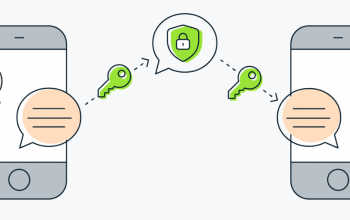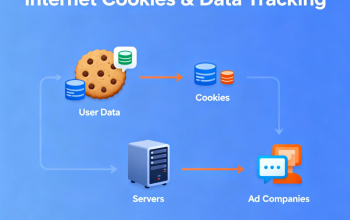In today’s digital age, privacy has become one of the most pressing concerns for individuals and businesses alike. Every click, search, or online purchase generates a trail of personal data that can be collected, analyzed, and potentially misused. Data breaches, identity theft, and unauthorized marketing have raised global awareness about the importance of safeguarding personal information. Against this backdrop, regulatory frameworks such as the General Data Protection Regulation (GDPR) in the European Union and the California Consumer Privacy Act (CCPA) in the United States have emerged as crucial tools to protect individuals’ privacy rights.
Both GDPR and CCPA aim to empower individuals with control over their personal data, impose obligations on businesses, and create accountability in data handling practices. However, while they share similar goals, the scope, enforcement mechanisms, and approaches differ significantly. Understanding these differences, as well as the practical implications of these laws, is essential for both consumers and organizations navigating the digital landscape.
GDPR and CCPA: An Overview
GDPR: Europe’s Gold Standard for Data Protection
The General Data Protection Regulation (GDPR), effective since May 25, 2018, represents the most comprehensive privacy law enacted by the European Union. Its reach extends beyond the EU: any organization worldwide that processes the personal data of EU residents must comply. GDPR is built on several core principles:
- Lawfulness, Fairness, and Transparency: Data must be processed legally, fairly, and transparently. Organizations are required to provide clear information about how personal data is collected and used.
- Purpose Limitation: Data should only be collected for specified, legitimate purposes.
- Data Minimization: Only data necessary for a specific purpose should be collected.
- Accuracy: Data must be kept accurate and up-to-date.
- Storage Limitation: Personal data should not be kept longer than necessary.
- Integrity and Confidentiality: Adequate security measures must protect personal data against unauthorized access, loss, or damage.
- Accountability: Organizations must demonstrate compliance with GDPR principles.
GDPR also grants data subjects a set of enforceable rights:
- Right of Access: Individuals can request access to their personal data.
- Right to Rectification: Errors in personal data must be corrected.
- Right to Erasure (“Right to be Forgotten”): Individuals can request deletion of their data under certain conditions.
- Right to Restrict Processing: Processing of personal data can be limited in specific circumstances.
- Right to Data Portability: Data can be transferred to another service provider in a structured format.
- Right to Object: Individuals can object to certain types of data processing, including direct marketing.
- Rights related to Automated Decision-Making: Individuals are protected against decisions made solely by automated processes that significantly affect them.
The GDPR imposes stringent penalties for non-compliance: fines can reach up to €20 million or 4% of global annual turnover, whichever is higher. Its robust enforcement has made it the benchmark for data protection globally.
CCPA: California’s Approach to Consumer Privacy
The California Consumer Privacy Act (CCPA), effective since January 1, 2020, reflects the growing demand for privacy protection in the United States. While its scope is narrower than GDPR, it offers a strong framework for California residents to exercise control over their personal information. Key features of CCPA include:
- Right to Know: Consumers can request a business to disclose what personal data is collected, used, shared, or sold.
- Right to Delete: Consumers can request the deletion of personal information collected by businesses.
- Right to Opt-Out: Consumers can opt out of the sale of their personal information.
- Right to Non-Discrimination: Businesses cannot discriminate against consumers who exercise their CCPA rights, such as by charging different prices or denying services.
CCPA applies to businesses meeting one of the following thresholds:
- Annual gross revenues exceeding $25 million.
- Handling the personal data of 50,000 or more consumers, households, or devices.
- Earning more than 50% of annual revenue from selling consumers’ personal information.
Enforcement of CCPA is managed primarily by the California Attorney General, with penalties reaching up to $7,500 per violation in cases of intentional non-compliance.
Comparing GDPR and CCPA
| Feature | GDPR | CCPA |
|---|---|---|
| Scope | EU residents, global applicability | California residents, specific business thresholds |
| Data Rights | Extensive (access, erasure, portability, objection) | Limited (knowledge, deletion, opt-out) |
| Consent Requirement | Explicit consent often required | Consent mainly for minors; opt-out for sale of data |
| Penalties | Up to €20 million or 4% of global revenue | Up to $7,500 per violation |
| Enforcement | Data Protection Authorities | California Attorney General |
| Data Transfer | Restrictions on international transfer | No explicit restrictions, but privacy agreements recommended |
This comparison shows that GDPR is broader and more stringent, emphasizing proactive compliance and data minimization, while CCPA is more consumer-rights-focused, targeting transparency and control over personal data sales.

How GDPR and CCPA Protect Privacy in Practice
Empowering Individuals
Both regulations empower individuals to assert control over their personal information. For instance, under GDPR, a user can request that a social media platform delete all data associated with their profile. Under CCPA, a Californian consumer can opt out of the sale of their browsing or purchasing data. These rights ensure that users are no longer passive participants in the digital ecosystem—they have enforceable claims to their own data.
Enhancing Corporate Accountability
For organizations, GDPR and CCPA necessitate the creation of robust data governance frameworks. Companies must:
- Maintain detailed records of data processing activities.
- Conduct Data Protection Impact Assessments (DPIAs) for high-risk processing.
- Appoint Data Protection Officers (DPOs) where required.
- Implement technical and organizational measures to protect personal data.
This not only mitigates legal risk but also fosters consumer trust—a competitive advantage in an era of increasing privacy awareness.
Real-World Case Studies
GDPR Enforcement Example: In 2019, Google was fined €50 million by the French data protection authority CNIL for lack of transparency and insufficient consent regarding personalized ads. This case highlighted GDPR’s ability to hold even global tech giants accountable.
CCPA Enforcement Example: In 2021, Sephora faced scrutiny over alleged non-compliance with CCPA regarding the handling of customer data. While the case was resolved through corrective action, it demonstrated how CCPA empowers consumers to challenge companies on data practices.
Challenges and Limitations
Despite their strengths, GDPR and CCPA face several challenges:
- Global Compliance Complexity: Multinational corporations must navigate overlapping regulations, increasing legal and operational complexity.
- Consumer Awareness Gaps: Many users remain unaware of their privacy rights or lack the knowledge to exercise them effectively.
- Technological Limitations: Implementing effective data controls can be technically challenging, especially with big data and AI-driven processing.
- Enforcement Variability: While GDPR has stringent penalties, enforcement consistency varies across EU member states. CCPA enforcement depends heavily on state-level resources and advocacy.
Moreover, neither GDPR nor CCPA fully addresses emerging technologies like Internet of Things (IoT) devices, facial recognition, or cross-border AI-driven analytics. This highlights the need for continuous legal evolution and complementary technological safeguards.
Practical Tips for Protecting Your Privacy
For Individuals
- Exercise Your Rights: Regularly request access to and deletion of your personal data from online services.
- Review Privacy Policies: Understand how your data is collected, used, and shared.
- Use Privacy-Enhancing Tools: Employ encryption, VPNs, and ad blockers to minimize data exposure.
- Limit Social Sharing: Be cautious about oversharing personal information on social media platforms.
For Businesses
- Implement Data Governance: Maintain clear policies for data collection, storage, and processing.
- Conduct DPIAs: Assess the impact of high-risk data processing activities.
- Ensure Transparency: Clearly communicate data practices and provide easy mechanisms for users to exercise their rights.
- Monitor Legal Updates: Stay informed about regulatory changes and emerging privacy laws, including potential federal legislation in the U.S.
By adopting these measures, both individuals and organizations can strengthen privacy protection and reduce the likelihood of legal violations.
The Future of Privacy Protection
As digital ecosystems evolve, privacy regulations will likely become more sophisticated and globally harmonized. Potential developments include:
- Federal Privacy Laws in the U.S.: Efforts are underway to create national-level privacy legislation that complements CCPA.
- Integration of Privacy-by-Design: Embedding privacy principles into technology development from the outset.
- AI and Automated Decision-Making Regulations: Expanding rights and protections in response to algorithmic decision-making.
GDPR and CCPA serve as foundational models, demonstrating that effective privacy protection requires both legal frameworks and proactive technological implementation.
In an era dominated by data, the importance of privacy cannot be overstated. GDPR and CCPA have set global benchmarks for protecting personal information, empowering individuals, and holding organizations accountable. While each law has its unique scope, principles, and enforcement mechanisms, they collectively underscore a universal truth: privacy is a fundamental right that must be respected, protected, and actively managed.

For individuals, understanding and exercising privacy rights is crucial. For organizations, compliance is not just a legal obligation—it is a strategic necessity in earning trust and sustaining reputation. As technology continues to advance, the principles enshrined in GDPR and CCPA will guide the future of privacy, ensuring that personal data remains under the rightful control of its owners.



